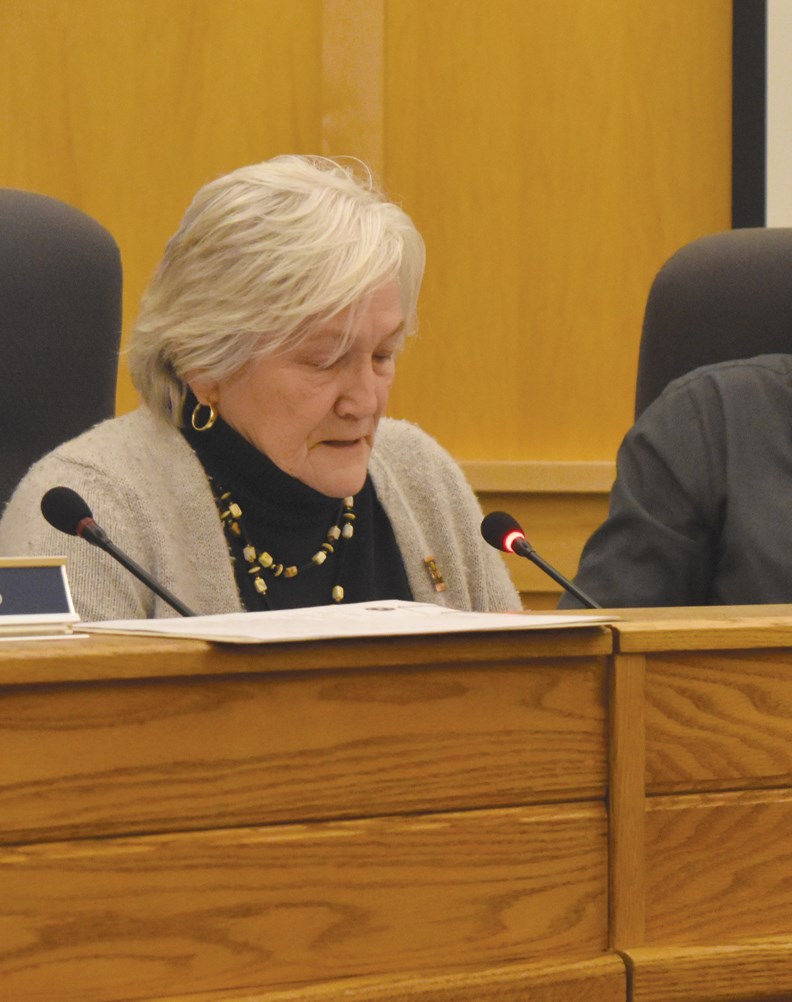A heated exchange over a letter by the District of Sechelt asking the Sunshine Coast Regional District (SCRD) to find a solution to water supply issues ended with a decision by the committee to respond in kind with a letter outlining the regional district’s progress and requesting clarification.
The letter from Sechelt was discussed by the SCRD infrastructure committee on Jan. 18.
The letter acknowledged the SCRD water supply “has faced numerous challenges to meet community needs,” including “severe drought” and “widespread water usage restrictions.” It stated: “Securing an adequate water supply” is “the top priority of District of Sechelt directors at the SCRD board.”
The letter ended by requesting “all reasonable and expeditious measures be taken to secure an expanded water supply on behalf of the District of Sechelt taxpayers and citizens.”
SCRD vice chair Ian Winn, Roberts Creek director Mark Lebbell and Area A director Frank Mauro voiced their confusion over the letter, with Lebbell calling it a “right turn.”
Sechelt Coun. Alice Lutes, who sits at the committee as an alternate director, said in response, “The things that are coming forward right now are more drought management in the view of most of our community.” What has come forward so far, she added, “isn’t addressing the issue of a long term supply.”
She said the rising number of units slated to be built in Sechelt will “put huge pressure” on the water supply. “We look to the regional district to tell us, ‘yes, there’s water,’ but we’re not feeling comfortable both as a council or as a community that that supply will support that future development.”
Mauro suggested conservation efforts such as metering “is equivalent to increase in supply.” He also referenced the SCRD’s budget proposal to find additional groundwater sources. “We’re walking a fine line if we put a stop to one of the things that actually in fact does provide, through drought management, the ability to moderate the effect of drought conditions by providing additional storage,” he said, referencing the Chapman Lake expansion project.
Director Jeremy Valeriote, representing Gibsons, raised the fact that the previous week, Bruce Milne, director for Sechelt, asked to withhold a request to Environment Minister George Heyman to speed up the process on the Chapman Lake expansion project decision. “I’m having trouble seeing why that wouldn’t go forward as an expeditious measure to find out what the options are,” said Valeriote.
Currently, the SCRD is waiting for the province to approve the project.
Elphinstone director Lorne Lewis, who has long resisted the Chapman Lake expansion project, reaffirmed his opposition, calling it “an environmental misadventure.”
Keith Julius, director of shíshálh Nation, spoke on request of Lebbell. “We are patient and we know something positive will come of our water issue.”
Garry Nohr, director for Halfmoon Bay, expressed frustration. He asked Sechelt to support the Chapman project going forward. “I hope it’s not true that certain members of Sechelt council are working with the group against the regional district on getting water in Chapman Lake, but that’s the rumour I’m hearing… We need to all be working in the same direction.”
At Lebbell’s request, the committee agreed to draft a letter in response, seeking clarification of Sechelt council’s request, and laying out with the help of staff “all four water-supply-related projects recommended in the Comprehensive Regional Water Plan that are either under way or under budget consideration at the regional district.”
Committee members mentioned the awkwardness involved, given that Lutes sits on Sechelt council and Milne is mayor of Sechelt.
Chapman Creek is the SCRD’s primary water source, supplying 90 per cent of the 23,000 properties on water service. About 5,300 properties in Sechelt get water from the SCRD.



